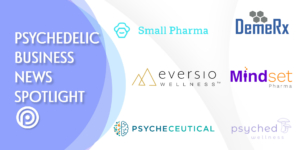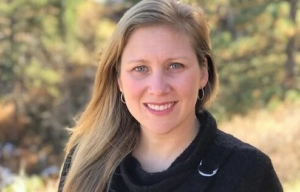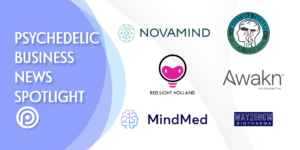
A recent survey published in the Journal of Psychoactive Drugs which investigated the Relationship Between Naturalistic Psychedelic Use and Clinical Care in Canada, found that more than a third of Canadian respondents who use natural psychedelics do so to self-medicate. However, most of these individuals don’t discuss their psychedelic use with health care providers (HCP), and a large majority of respondents do not test their substance.
Funded by SABI Mind, MAPS Public Benefit Corps, and Psygen, the anonymous survey included 2,384 participants, and aimed to assess the health results of psychedelic use among Canadian adults who have used psychedelics in the past and whether the respondents integrated their experiences with psychedelics with their HCPs.
The researchers found that:
- About 82% of the respondents never discussed their use of naturalistic psychedelics with their healthcare provider.
- 33.7% of Canadians who reported using psychedelics did so to self-medicate a health condition.
- 4.4% use psychedelics in the company of a therapist and 3.6% were administered the drugs in a clinical setting.
- 44.8% of respondents reported being aware of the existence of services to test the substance for purity and contamination; but only 14.4% ever used them.
After performing multivariate regressions, the researchers discovered that the chances of individuals to discuss their psychedelic use with their primary HCP increased if they were intending to use the substances to self-treat, if they were looking for guidance from a therapist, and if they identified as non-binary.
Moreover, the odds of individuals being aware of the existence of substance testing services increased based on factors such as, education level, previous use of psychedelics, and gender and age. Individuals who reported having used psychedelics more times, who had higher education, who identified as non-female, who were younger, and who intended to use psychedelics for therapeutic purposes had higher chances of being aware of substance testing services.
The researchers concluded that healthcare providers need more training and education relevant to the psychedelic field, and that there should be “more visible options for substance training.”
The results of the survey are not very surprising. Although the recent resurgence of interest and research of psychedelics as potential treatments for a variety of mental health conditions has been presenting evidence of these substances’ efficacy in treating affective disorders such as depression, anxiety, and PTSD, psychedelics such as psilocybin are still illegal in Canada. It is understandable that Canadians fearing legal consequences would prefer not disclosing their psychedelic use with their health care providers, especially if they are covered by their employee insurance. Despite the fact that the stigma surrounding psychedelic use is slowly dissipating, it is impossible to know how frequently health care providers read new research papers, especially if these substances have not yet been approved by Health Canada. Hence, they may not be familiar with the latest research in the mental health field, which ultimately means that clinicians may be unaware of the data demonstrating these substances’ efficacy. Canadians who are uncertain of their health care provider’s attitudes and perceptions towards such treatments can greatly influence their willingness to disclose their psychedelic use. Is it that surprising that there would be resistance to reveal use of illegal substances to health care professionals? Certainly not.
Contrary to popular belief, classical psychedelics such as ayahuasca, peyote, and psilocybin have been shown to be non-addictive. In fact, psilocybin has received two FDA breakthrough designations allowing faster research into its therapeutic applications in the treatment of major depressive disorder (MDD) and treatment-resistant depression (TRD). So far, studies have shown that a single dose of psilocybin is capable of treating major depressive disorder and treatment resistance depression, and positive results form the largest phase 3 psilocybin clinical trials for treatment-resistant depression are expected in late 2025, which would lead to FDA approval. In Canada, the only way to get access to psilocybin-assisted therapy is through the Special Access Program (SAP), allowing healthcare professionals to prescribe psilocybin-assisted therapy. However, SAP requests can only be granted for patients with a “serious or life-threatening condition” for cases where other traditional treatments fail to deliver results, are incompatible for the patient, or are unavailable in Canada, access to the program appears to be very limited. Therapsil, a small non-profit focused on helping Canadians get legal access to psilocybin-assisted therapy, is helping patients to access medical psilocybin. Despite the fact that the coalition fights relentlessly to give access to psilocybin to those in need, even when patients match the eligibility criteria, access is still limited.
Public perceptions on psilocybin use are changing in Canada. In 2021, a poll released by the Canadian Psychedelic Association (CPA) reported that Canadians largely support psilocybin-assisted therapy.
The Nanos Research survey of 1,051 Canadians found that 82% approve the use of psilocybin-assisted therapy for people suffering from an end-of-life illness. Moreover, 78% of the respondents said they would support a government that legalized psilocybin-assisted therapy for end-of-life patients, as well as those receiving palliative care.
Additionally, 64% of the survey participants approve of the Canadian government expanding legal access to psilocybin-assisted therapy for those who qualify under the Medical Assistance in Dying (MAID) rules. Is this a sign that Canada may become the next country to legalize psychedelic medicine? Perhaps…
“It is encouraging that this is an issue that all political parties support and Canadians have given their endorsement for,” says Dr. Pamela Kryskow, a medical doctor and psychedelic researcher. “We see this as a green light for Health Canada to proceed with the regulations.”





